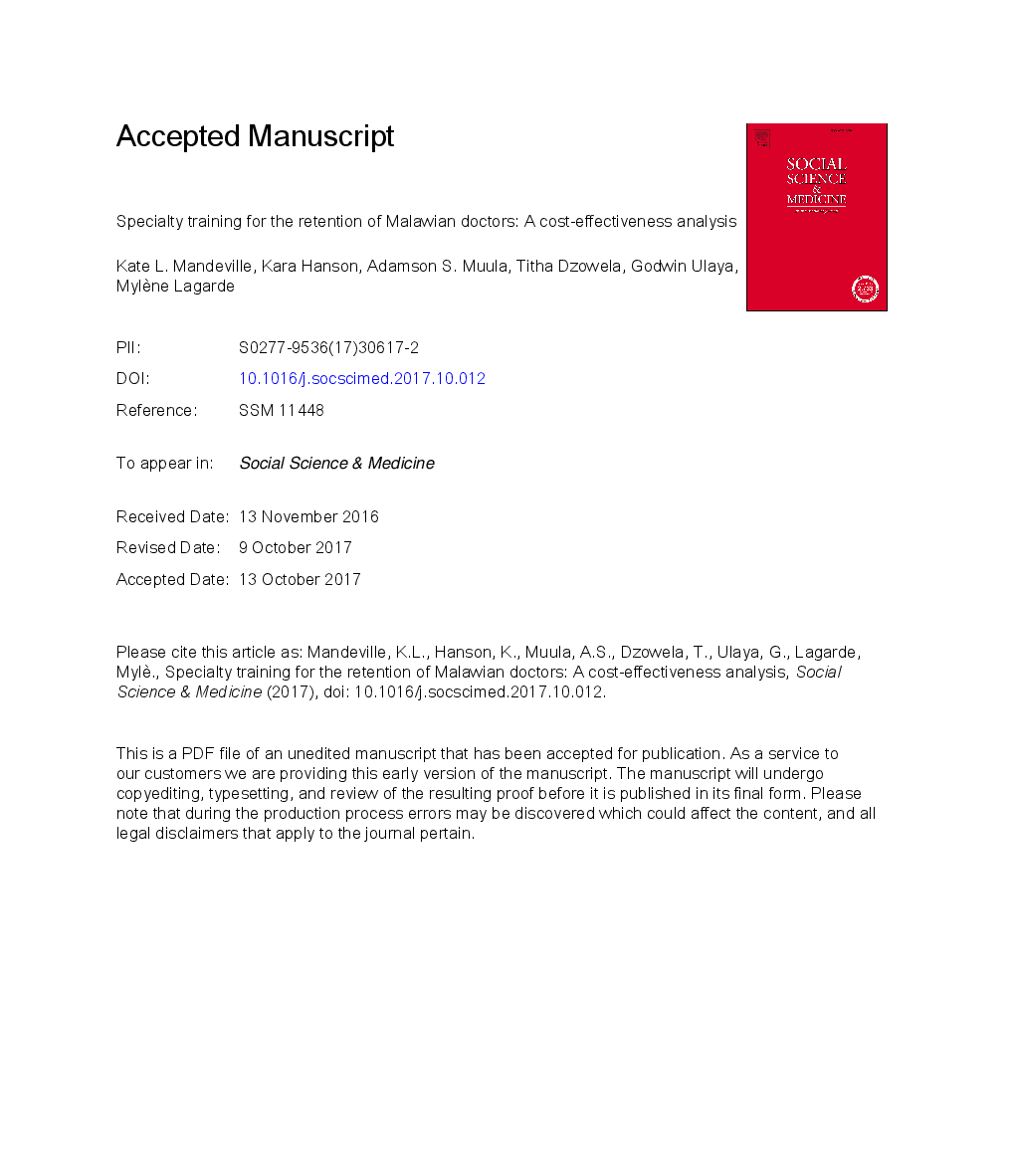ترجمه فارسی عنوان مقاله
آموزش تخصصی برای حفظ پزشکان مالاوی: تجزیه و تحلیل هزینه-اثربخشی
عنوان انگلیسی
Specialty training for the retention of Malawian doctors: A cost-effectiveness analysis
| کد مقاله | سال انتشار | تعداد صفحات مقاله انگلیسی |
|---|---|---|
| 102325 | 2017 | 38 صفحه PDF |
منبع

Publisher : Elsevier - Science Direct (الزویر - ساینس دایرکت)
Journal : Social Science & Medicine, Volume 194, December 2017, Pages 87-95
ترجمه کلمات کلیدی
مالاوی، تجزیه و تحلیل هزینه-اثربخشی، آزمایش انتخابی گسسته، منابع انسانی برای سلامتی، پزشکان، آموزش پزشکی، تخصص
کلمات کلیدی انگلیسی
Malawi; Cost-effectiveness analysis; Discrete choice experiment; Human resources for health; Physicians; Education medical; Specialization;

